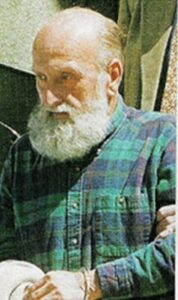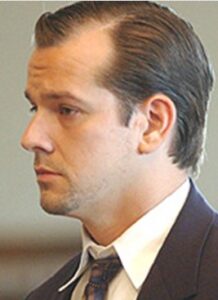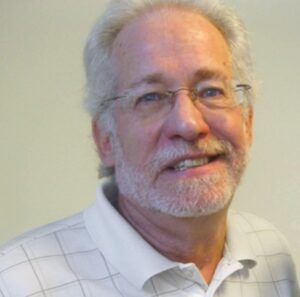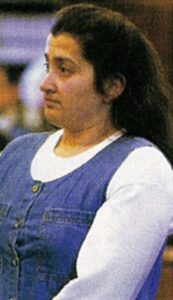https://wrldrels.org/2021/10/03/body-of-christ/
Susan Palmer, Yasmina Male & Sean Remz
Body of Christ
THE BODY OF CHRIST TIMELINE
1933: The Worldwide Church of God (WCOG) was founded as the Radio Church of God by Herbert W. Armstrong.
1941: Roland Robidoux was born.
1972 (January): Herbert Armstrong predicted the imminent Second Coming of Jesus.
1974: Jacques Robidoux was born.
1975: Roland Robidoux was ordained pastor in the WCOG in Rhode Island.
1977: Roland Robidoux and his wife Georgette left the WCOG due to scandals in that church. Along with the co-defector, Reverend Brian Weeks, Roland Robidoux founded a Bible Study Group called The Church of God in Mansfield, Massachusetts.
1992: Carol Balizet published Born in Zion; she identified Maine as the “New Jerusalem” and exhorted the rejection of modern medicine.
1992: Michelle Robidoux and Dennis Mingo moved into the Robidoux community.
1995: The Body of Christ membership reached nineteen adults and their children, along with a high birthrate.
1996 (Summer): Jacques Robidoux married Karen Daneau, and the couple rented a house in Attleboro Falls, Massachusetts.
1997: The Robidoux family lived together semi-communally across a group of family homes in Attleboro and Seekonk, Massachusetts.
1997 (Summer): The work of Carol Balizet was incorporated into the group’s worldview and ritual practice.
1997: Jacques Robidoux, at the age of twenty-three, was anointed as an “Elder” by his father.
1998: The group adopted The Body of Christ as its name.
1998 (April): A son, Samuel, was born to Karen and Jacques Robidoux.
1998 (November): Dennis Mingo defected from the Body of Christ but continued to visit his children in his home.
1998: Jacques Robidoux and his sister Michelle announced that followers should burn all their non-scriptural books, and they also banned traditional Christian hymns. Roughly half of the forty members left the group.
1998: The group abandoned efforts to recruit new members and became more insular due to its belief that it was chosen by God.
1999 (March): Michelle Mingo imposed a strict dietary regimen on her sister-in-law, Karen (Daneau) Robidoux, and her baby Samuel, forcing him to forego solid food.
1999 (April 26): Samuel Robidoux died from starvation.
1999 (May): There were additional defections from the group.
1999 (September): Dennis Mingo discovered his wife Michelle’s diary of a two-week period in March of that year, chronicling the emaciation of Samuel Robidoux and Karen’s emotional trauma.
1999 (November): The Massachusetts Department of Social Services removed eleven children from the group, and Karen Robidoux lost custody of all her children.
2000-2002: A financial crisis occurred within the group.
2000 (April): A grand jury began an investigation into the deaths of Samuel Robidoux and Jeremiah Corneau.
2000 (August): Juvenile Court Judge Kenneth P. Nassif ruled that the parents were unfit to take care of their children, who were then transferred to state control.
2000 (October): Jacques Robidoux was charged with first-degree murder for “directing the systematic withholding of nourishment,” Karen Robidoux was charged with second-degree murder, and Michelle Mingo was charged as an accessory to murder.
2002 (April-May): The Corneaus refused to testify to the grand jury when summoned by Judge Kenneth Nasif. They also waived their Fifth Amendment Rights as a way of rejecting the court’s authority. Judge Nasif held them in contempt of court and sent them back to prison.
2002 (June): The Corneaus finally testified to the grand jury that their baby was stillborn.
2002 (June): Jacques Robidoux was sentenced to life in prison.
2003 (February 3): The jury acquitted Karen Robidoux of second-degree murder, and charged her with assault and battery.
2003-2004: Michelle Mingo pleaded guilty to two counts of being an accessory to murder but was released because she had spent four years in custody.
2006: Roland Robidoux died.
2009: Jacques Robidoux requested a post-conviction hearing on his conviction and sentencing that was unsuccessful.
FOUNDER/GROUP HISTORY
The forerunner of the group that would become The Body of Christ was the Radio Church of God, founded by Herbert W. Armstrong in 1934. The group was renamed the Worldwide Church of God in 1968. Armstrong predicted an imminent Second Coming of Jesus for January 1972, along with a prediction that 1975 would be a year of supreme prophetic significance. The failure of these predictions factored into the development of offshoot churches in the 1970s (Barrett 2013).

Roland Robidoux, [Image at right] who founded The Body of Christ, was born 1941. He was ordained pastor in the WCOG in Rhode Island in 1975. Just two years later Roland and his wife Georgette left the WCOG due to scandals in that church. Together with fellow defector Brian Weeks, they formed the Church of God in Mansfield, Massachusetts and then the Church of God in Norton, Massachusetts (Chryssides 2012:75). The church subsequently moved to North Attleboro in 1986.
The church was relatively open during the first half of the 1990s and publicly proselytized for new members until 1997 (Pardon 2000). Members lived semi-communally as a group of families, nineteen at the time of its peak in 1995 (Personal communication from Jacques Robidoux to Palmer and Male, October 2020). It was in 1997 that Roland Robidoux unilaterally appointed his son Jacques as leader of the church (Personal communication from Jacques Robidoux to Palmer and Male, September 2020).

In 1998, Jacques Robidoux, [Image at right] reported that he submitted to an “inner voice” seeking abandonment of the outside world and abruptly left his job (Personal communication from Jacques Robidoux to Palmer and Male, September or October 2020). That year the group was renamed The Body of Christ, reflecting a more exclusivist notion of belonging (Personal communication from Jacques Robidoux to Palmer and Male, September or October 2020). The rise of Jacques Robidoux’s control over the group and its overall inward turn led to a focus on dogmatic “spiritual leadings” to override individuals’ interpretation of scripture and to serve as the sole basis for everyday decision-making. As the Body of Christ withdrew from the outside world in 1998, Jacques Robidoux and his sister Michelle jointly led the group to burn all of their non-Biblical books (Palmer and Male 2020:7). In June of that year, ten days after his submission to that “inner voice,” Robidoux insisted that the Body of Christ undergo an ill-supplied trek to Maine, which was considered to be a “New Jerusalem” and a preparation for a larger apocalyptic confrontation (“Former sect member testifies in murder trial” 2002). The church had also begun facing financial problems in 1996 when the masonry business of the Daneau family, which was prominent in Robidoux’s circle, went bankrupt (Palmer and Male 2020:5).
In November 1998, Robidoux’s brother-in-law, Dennis Mingo, left the group, but he continued to visit his children who remained in the group. This defection became a pivotal moment in the decline of the church (Palmer and Male 2020:9). The following year, in September 1999, Mingo discovered his wife Michelle’s diary from that spring which outlined the regimen that she imposed on Jacques’ wife Karen Daneau Robidoux and their infant son Samuel. (Interview with Robert Pardon, 2020) This regimen led to Samuel’s starvation and death that April. After a week of trying to coax Michelle into leaving the group with their children, Dennis became a whistleblower, reporting to the police that Samuel was missing and turning the diary over to them (Thompson 2000). Other core members of the Body of Christ refused to verbally engage with the officials in the judicial system and lost custody of their children. Jacques Robidoux was subsequently charged with first-degree murder in June 2002 (“Sect members face murder charges” 2000; Emery 2002). In the wake of the publicity over Samuel’s death, the group also faced a financial crisis from which it never recovered (Wedge 2002).
During his first year in prison, Jacques Robidoux maintained his innocence, but he appears to have altered his position when his wife filed for divorce in 2003. He began to engage in theological and emotional introspection, which led to his finally accepting responsibility for the death of his son. In 2005, Robidoux filed an appeal, invoking a defense in terms of “brainwashing,” which was denied (Linton 2007; “New trial denied” 2006). In 2009, Robidoux requested a post-conviction hearing on his conviction and sentencing that also was unsuccessful. He engaged in a partially self-directed “deprogramming,” which led him to become active in the religious activities of his prison.
DOCTRINES/BELIEFS
In addition to the Bible, the main text informing the Body of Christ after its inward turn in 1997 was Carol Balizet’s Born in Zion, which depicted the state of Maine to be a millenarian refuge and advocated healing through faith and prayer. This book is a manifesto advocating complete withdrawal from the world. It describes government, banking, science, public education, entertainment, religion, and most notably modern medicine, as institutions controlled by Satan (Personal communication from Jacques Robidoux to Palmer and Male, September-October 2020). The adoption of these ideological presuppositions was aligned with the exhortation to be “led by the spirit,” which was the prevailing practice once Jacques Robidoux assumed power. The “scripturalizing” of these teachings through diary-writing ultimately eclipsed the group’s adherence to any corpus of traditional, mainline Biblical teachings (Pardon 2000).
Robidoux claimed that being part of a “Body of Christ” implied that the leadership was communal in nature and therefore could originate from anyone in the group (Pardon 2000; Personal communication from Jacques Robidoux to Palmer and Male, September 2020). However, authority actually became more hierarchical as pronouncements from the Robidoux men automatically became doctrinal. Robidoux’s pronouncements therefore did not democratize and stabilize the group but rather nurtured erratic, unsafe and dangerous plans and practices that ultimately led to Samuel Robidoux’s death, as his screams and evidence of radical weight loss were interpreted as “Satanic illusions” (Pardon 2000). According to Robert Pardon, the increasingly dangerous feedback loop of dangerous “spiritual leadings” was part of it’s “devolving” spirit-body dichotomy, in which everyday occurrences were over-determined by their assumptions about Divine will (Pardon 2000).
ORGANIZATION/LEADERSHIP
Ronald Robidoux and Roger Daneau were the leaders of the group in its more settled phase; their families intermarried and formed the main cohort of adherents. The Body of Christ is categorized as a family-based sect, and can be roughly conceptualized as having a patriarchal lineage, although the passing of leadership from Roland Robidoux to Jacques Robidoux was simply a decree and not a formal succession (Palmer and Male 2020:1-3, 30; Pardon 2000).

According to Robert Pardon, [Image at right] Roland Robidoux’s leadership prior to the late 1990s featured forms of communal and scriptural accountability that became defunct once he granted his son control. A former adherent said that Pastor Roland used to suggest when making a declaration: “go to the library, check your concordances and Bible dictionaries and see if I’m right” (Pardon 2000). By 1997-1998, the Robidoux men could brook no dissent, as they considered themselves appointed by God to lead their chosen people. Although leadership was theoretically decentralized in terms of the group-wide circulation of “leadings” by any member, such spiritual exclamations were never allowed to go against the ever-increasing restrictions and exclusivity that characterized Jacque Robidoux’s authority (Pardon 2000).
ISSUES/CONTROVERSIES
The Body’s challenges began shortly before the accession of Jacques Robidoux to power, a turning point which vastly increased the possibility of disaster given that nature of “leadings” and the zealousness with which they were followed. The ill-fated trip to Maine in June 1998 was the first major instance of a risky undertaking since the participants believed that they could not bring any provisions with them.
 This event played a role in the defection of Dennis Mingo, which was the beginning of the group’s unraveling (Pardon 2000; Palmer and Male September-October 2020). The next controversy, which led to the effective disintegration of the Body of Christ, was the ritual starvation of Samuel Robidoux. In March 1999, Michelle Mingo [Image at right] invoked Mark 7 and the text’s reference to the issue of vanity to lead her sister-in-law Karen to limit her diet to a gallon of almond milk daily and to reverse her ten-month-old son Samuel’s weaning (Personal communication between Robert Pardon and Susan Palmer 2020). Since Karen was pregnant at the time, her ability to breastfeed was limited. When she tried to give Samuel solid food, Jacques Robidoux took him away from his mother. Aside from Karen’s secret spoonfuls of yogurt to Samuel on one occasion, he received nothing but very thin breast milk for nourishment for fifty-two days. He died on April 26 (Palmer and Male 2020:17-20, 38).
This event played a role in the defection of Dennis Mingo, which was the beginning of the group’s unraveling (Pardon 2000; Palmer and Male September-October 2020). The next controversy, which led to the effective disintegration of the Body of Christ, was the ritual starvation of Samuel Robidoux. In March 1999, Michelle Mingo [Image at right] invoked Mark 7 and the text’s reference to the issue of vanity to lead her sister-in-law Karen to limit her diet to a gallon of almond milk daily and to reverse her ten-month-old son Samuel’s weaning (Personal communication between Robert Pardon and Susan Palmer 2020). Since Karen was pregnant at the time, her ability to breastfeed was limited. When she tried to give Samuel solid food, Jacques Robidoux took him away from his mother. Aside from Karen’s secret spoonfuls of yogurt to Samuel on one occasion, he received nothing but very thin breast milk for nourishment for fifty-two days. He died on April 26 (Palmer and Male 2020:17-20, 38).
As a result of the intervention of Dennis Mingo, police arrived at the Seekonk compound on November 8, 1999. Eleven children were removed from the residence by social workers (Richardson 2000). A large contingent of the group then fled to Baxter State Park in Maine; the group buried both Samuel and the stillborn Jeremiah Corneau (Male February, 2020; Thompson 2000; Wedge 2001, 2002, 2006).
A grand jury investigation into the deaths of the two babies began in April 2000. In court, the members of The Body were reclusive; authorities surmised that this was at the behest of the Robidoux men. They refused to swear on the Bible, which added to the outsider perception of the defendants being an anti-government cult (Male 2020; Lewis 2000). In Juvenile Court hearings and elsewhere, Jacques Robidoux refused to reveal where Samuel and Jeremiah were buried. In August 2000, Judge Kenneth Nassif invoked the Book of Jeremiah to assert that Robidoux was a false prophet (Ellement 2000). In that month Judge Nassif declared the parents of The Body to be unfit, and thirteen children became wards of the state (Fires 2000).
Meanwhile, in the trial of Jacques Robidoux himself, he and his father refused to recognize the legitimacy of the court, declaring himself as a “sovereign citizen” (Noonan 2000; Ellement 2000). He was incriminated by his own emotionally detached handwritten notes, chronicling his son’s ritual starvation (“Prosecutor: Cult Dad watched Baby Starve” 2002). In June 2002, Robidoux was convicted of first-degree murder and sentenced to life in prison (Lavoie2002; “Jury deliberate in sect baby’s death” 2002).
In Karen Robidoux’s trial, her defense was based on a claim that she had been brainwashed by The Body. This defense was supported by psychologists who believed that she had post-traumatic stress disorder that hampered rational decision-making. Although surprising the prosecution and some legal experts, in February 2003 Karen was acquitted of second-degree murder and charged with assault and battery (McKinney 2004; Ellement 2004). Since Karen had already been in state custody for three years, she was released from prison (McKinney 2004; Ellement 2004). Likewise, Michelle Mingo pleaded guilty to accessory to assault and battery, but she was also released after her four years of imprisonment. (Lavoie 2004). Claiming the brainwashing defense, as did his wife, Jacques Robidoux filed an appeal in 2005 that reached the Massachusetts Supreme Court, but the appeal failed (Wedge 2005; Sweet 2007).
As of August 2000, Jeremiah’s mother, Rebecca Corneau, was eight months pregnant; she told the Family Court that she rejected medical assistance (Wedge 2000). Bristol County District Attorney Paul F. Walsh, Jr. asked that she be put in custody for the remainder of the pregnancy, which set off opposition from feminist and civil rights organizations (Wedge 2000; “Jailing of Pregnant Women Could Change How Courts Deal with Religion, Abortion” 2000; “Pregnant sect member’s case is a rights quandary” 2000). Judge Nassif insisted that she be allowed to stay at home, with visits from a nurse. After a stubborn refusal of the nurse and legal counsel, Nassif sent her to a hospital designed for pregnant inmates in state custody (Lehourites 2000; Fires 2000). In mid-October, Corneau gave birth, and the baby was placed in foster care (Farmer and Wedge 2000).
These court cases caught the American public’s attention in the early 2000s, rekindling questions of the legal conflicts between parental responsibility and fundamentalist tenets of faith (Palmer and Male 2020:1). Religion scholars and journalists alike have noted a succession of instances in which U.S. legal authorities have debated state intervention vis-à-vis groups that deny medical care to their children, such as Christian Science and the Faith Assembly (Wedge 2000). In Jacques Robidoux’s case, the court invoked the precedent of Christian Scientists being granted exemption from medical requirements in order to counter Robidoux’s appeal (Holoyda and Newman 2016:59-60).
IMAGES
Image #1: Roland Robidoux.
Image #2: Jacques Robidoux.
Image #3: Robert Pardon
Image #4: Michelle Mingo
REFERENCES
Barrett, David V. 2016. “The Worldwide Church of God.” World Religions and Spirituality Project. Accessed from https://wrldrels.org/2016/10/08/worldwide-church-of-god/ on 22 June 2013.
“B” (Retired Seekonk Police Detective). 2020. Interview by Yasmina Male, April.
Belz, Emily. n.d. “When the fog lifts.” World News Group. Accessed from https://wng.org/articles/when-the-fog-lifts-1620590821 on 6 September 2021.
Chryssides, George D. 2011. Historical Dictionary of New Religious Movements. Lanham, Md: Scarecrow Press.
Ellement, John. 2004. “Jury acquits Robidoux of murdering baby.” The Boston Globe, February 4.
Ellement, John. 2000. “Cultist’s infant son officially ruled dead: Judge calls leader a ‘false prophet,’” The Boston Globe, August 17.
Emery, Theo. 2000. “Sect members plead innocent.” Associated Press, November 15.
“Former Sect Member Testifies in Murder Trial.” 2002. WCVB – The Boston Channel, June 6.
Farmer, Tom and Dave Wedge. 2000. “Attleboro cult mother’s newborn taken by DSS,” Boston Phoenix, October 17.
Fires, Jacob H. 2000. “Former Attleboro sect member given custody of his children” The Boston Globe, August 18.
Fires, Jacob H. 2000. “Court action planned against cult member.” The Boston Globe, August 21.
Holoyda, Brian and William Newman. 2016. “Between Belief and Delusion: Cult Members and the Insanity Plea.” Journal of the American Academy of Psychiatry and the Law 44:53-62.
“Jailing of Pregnant Women Could Change How Courts Deal with Religion, Abortion.” 2000. Fox News, September 14.
Lavoie, Denise. 2004. “Sect member pleads guilty in baby’s death.” Associated Press February 10.
Lavoie, Denise. 2002. “Sect member loses bid to represent self in starvation trial.” Associated Press, June 4.
Lavoie, Denise. 2002. “Prosecutor Details Infant’s Demise.” Associated Press, June 6.
Lehourites, Chris. 2000. “Judge turns down move to lock up pregnant sect member.” Associated Press, August 29.
Lewis, Raphael. 2000. “Sect arrests yield few clues in case.” The Boston Globe, June 29.
Linton, David. 2007. “Attleboro cult: Jacques Robidoux appeal set.” The Sun Chronicle in Religion News Blog, September 6.
McKinney, Michael P. 2004. “Witness recalls ‘visions’ guiding sect members.” Providence Journal, January 24.
Mehren, Elizabeth. 2000. “Pregnant sect member’s case is a rights quandary.” Los Angeles Times, September 9.
Noonan, Erica. 2000. “Missing children reveals insular sect in Attleboro,” The Boston Globe.
Palmer, Susan J. and Yasmina Male. 2020. “Missing Children in the Body of Christ.” Unpublished Manuscript.
Pardon, Robert, 2000, The Body of Christ: Descent from Benign Bible Study to Destructive Cult.
Pardon, Robert. 2020. Interview by Susan Palmer, May.
Rego, John. 2020. Interviewed by Yasmina Male, April.
Richardson, Franci. 2000. “DSS takes steps toward cult kids’ custody.” The Boston Herald, March 3.
“Sect members face murder charges.” 2000. CBS News, October 24.
Sweet, Laurel J. 2007. “Court upholds Robidoux murder conviction.” The Boston Herald, December 4.
Thompson, Anne. 2000. “Cult Comes into conflict with the world it spurned.” Los Angeles Times, September 17.
Wedge, Dave., 2005. “Cult-ivating a new defense: Sect leader serving life for starving son claims he was brainwashed.” The Boston Herald, November 22.
Wedge, Dave. 2002. “Cult leader wanted TV deal.” The Boston Herald, March 20.
Wedge, Dave. 2001. “Cult infant starved to death, buried in state park.” The Boston Herald, July 13.
Wedge, Dave. 2000. “SJC to rule on cult mother case: Pregnant pause may bring prison birth.” The Boston Herald, September 8.
Wedge, Dave. 2000. “Attleboro group not the first questioned.” The Boston Herald, September 3.
Wedge, Dave. 2000. “DA: Save that baby: Walsh want cultists to give birth in custody.” The Boston Herald, August 29.
“Prosecutor: Cult Dad Watched Baby Starve.” 2002. The Boston Herald, June 6.
Publication Date:
1 December 2021


No comments:
Post a Comment